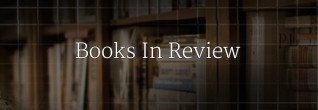SCAR by Thomas L. McComb | Books in Review

“This book is dedicated to all who shared Viet Nam’s misery and anguish. Those of us who fought there went through Hell and brought this Hell home with us to haunt our minds.” So reads the dedication in Thomas L. McComb’s SCAR: Southeast Asia Crisis and Repercussions (297 pp., $9.95, Kindle), a bitter infantryman’s memoir.
McComb goes on to say: “This entire country is covered by a scar.” Everything in his book, he says, “is true, based on a descriptive log kept by me and the inerasable memories etched in full color in my mind.”
I have no doubt that Tom McComb believes everything in his book is true, but I don’t believe it. He tests my ability to believe him more than once. For instance, I believe him when he says, “My parents raised us in a Christian home and taught us to respect and love each other and our fellow man.” But time and again in this memoir McComb does not honor that raising in practice where Vietnamese people are concerned. He does not seem to accept that they are human.
They “were uneducated, underdeveloped, ungroomed third-world underlings, ” he writes, “and I disrespected their way of life. I felt I was better than they were, and I wondered why it was taking us so long to whip the V.C. if they were like these people.” He goes on: “With our intelligence and technology, it should have been a snap.” Of course, the Vietnamese kids were sharp enough to steal his watch.
McComb was drafted on September 26, 1966. He tells us he was excited and proud to be drafted into the U. S. Army. “After all, hadn’t I trained my whole childhood to be a soldier?”
I found the most interesting chapters to be the ones about McComb’s boyhood back home in Indiana. Much of that is quite moving: about being pounded on by his big brothers, his general lack of interest in school, and his obsession with fast cars. McComb says of his brothers: “They constantly belittled me and told me I was dumb and worthless.”
McComb came home from Vietnam in July 1968. He and I served in the Army in Vietnam at almost the exact same time. But our experiences couldn’t have been more different. When he arrived in Vietnam on a troop ship, McComb was trucked to Chu Lai, the headquarters of the Americal Division, then to Hill 69, and from there to Duc Pho Base Camp. And then all the usual infantry stuff began.
He tells us about his return from Vietnam, in which a man gave up his ticket so that he wouldn’t miss his flight, and how a stewardess offered to take him home with her. His personal experiences were positive, but he then goes on to say: “Returnees were being spat upon and attacked at airports. Patriotic soldiers were accused openly of being baby killers and war criminals.” These things did not happen to McComb by his own account. Far from it.
Later he writes: “I found out that only those who were not affluent, or those who could not or did not go to college were drafted.” And: “The ‘smart kids’ must be saved. It puts me in mind of Hitler’s mentality of creating a master race.”

McComb rants about Jane Fonda. He questions when she was not tried for treason and hung. “She criticized the government and our soldiers to the enemy, ” McComb writes, “and then came home and openly criticized them again!” The truth is that the only thing Jane Fonda had done of note while McComb was in the Army was to be the most popular pin-up in Vietnam. Her trips to Hanoi came in the 1970s. McComb is peering into the future.
Chapter 22 amounts to one long rant about how unfair life has been to the author. Here’s some news, though: life is not fair. My dental damage from the war was not fixed by the government either. I had to pay for it out of my pocket, just like McComb did. My GI Bill benefits ran out in ten years also, so I lost them, as McComb did.
There’s nothing remarkable about the infantry exploits in this memoir, which is why I focused on other aspects of the book. For those who want their prejudices reinforced about how worthless REMFs and ARVNs and the Vietnamese people are in general, this book may be for you.
I read it twice, so I wouldn’t miss the nuances, and it was a hard read for me. Both times.
—David Willson
